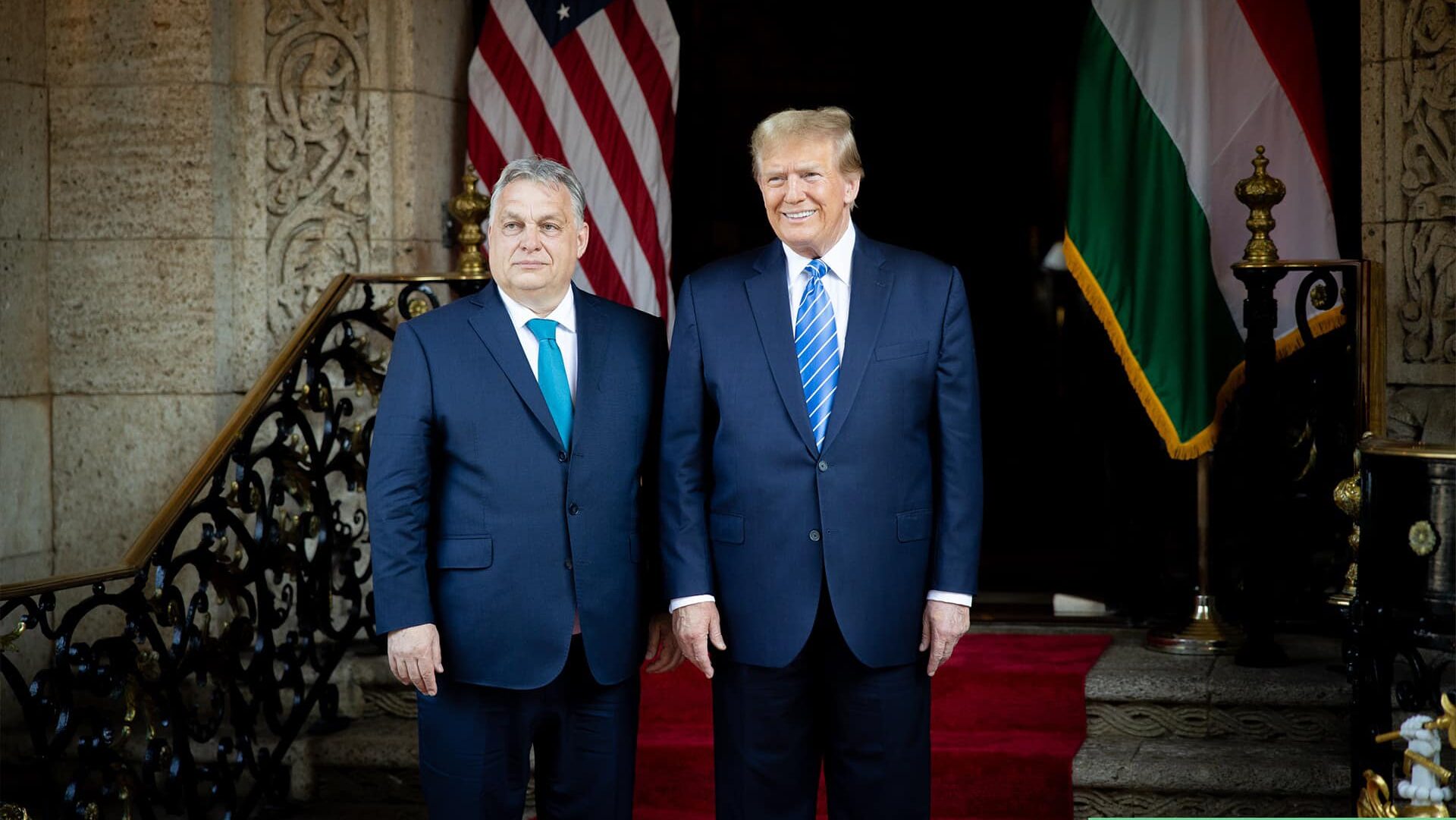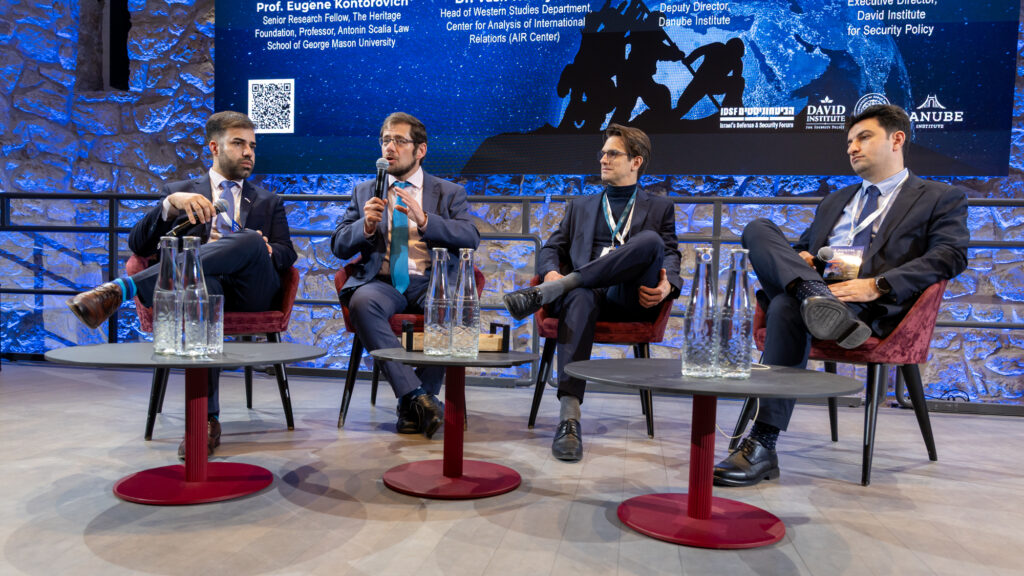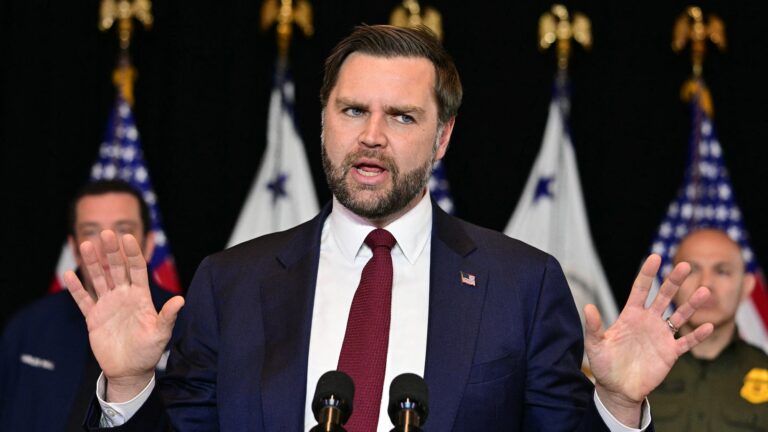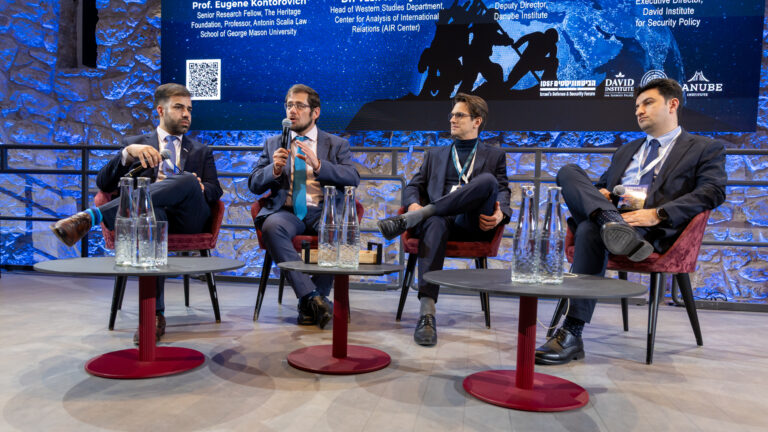Donald J. Trump’s reelection in November 2024 has led to a rapid renovation of U.S.–Hungarian relations, which had suffered serious damage under Joe Biden, who held office between Trump’s two terms. Hungarian Prime Minister Viktor Orbán, who visited Trump during the election campaign and at other times when Trump was out of office, has called the U.S. President ‘the man who can save the Western world.’ Trump, in return, has said: ‘There’s nobody that’s better, smarter, or a better leader than Viktor Orbán.’ During Trump’s first administration and through the Biden years, the ‘Hungarian model’ emerged as an inspiration and interlocutor for national populist movements around the world, including the ‘national conservative’ ideology now ascendant on the American Right. Kevin Roberts, president of the prominent right-wing Heritage Foundation, has said: ‘Modern Hungary is not just a model for conservative statecraft but the model.’
Orbán was the only European Union head of government who openly favored Trump’s 2024 reelection after what he called ‘four bitter years’ in U.S.–Hungarian relations under Biden, which he experienced as ‘painful and full of failure’. Orbán foresaw improved relations between Hungary and the United States as early as the hours leading up to President Trump’s reelection. As the voting results came in, Orbán posted that Trump was ‘on the road to a beautiful victory. It’s in the bag!’ In an address to the American Chamber of Commerce in Budapest on 22 November, Hungarian Foreign Minister Péter Szijjártó announced that ‘with the upcoming inauguration of Donald Trump, Hungarian–American relations may again enter a new dimension, a “golden age”.’ On 17 January 2025, just three days before Trump’s second inauguration, Orbán used the same phrase, saying in his regular weekly address on Kossuth Radio that he expected a ‘fantastic, great golden age’ in relations during Trump’s second term. In his address to CPAC Hungary in May 2025, Orbán hailed Trump’s victory as ‘a real civilizational turnaround’ that ‘has given hope back to the world…It is the greatest comeback the Western world has ever seen: the one, big, beautiful comeback.’
‘Trump, in return, has said: “There’s nobody that’s better, smarter, or a better leader than Viktor Orbán.”’
U.S. officials have enthusiastically embraced this ‘golden age’ rhetoric. Robert Palladino, the U.S. interim chargé d’affaires in Budapest, has hailed it on multiple occasions, including at the Hungarian Institute of International Affairs shortly after his arrival in March 2025. At the U.S. embassy’s Independence Day celebrations in Budapest on 2 July 2025, Palladino praised ‘the enduring strength of U.S.–Hungarian relations’ and confidently predicted a ‘bright future ahead’. Szijjártó, who also spoke at the event, declared that ‘stable foundations have been laid for a new golden age in U.S.–Hungarian relations.’ According to U.S. State Department bulletins, Szijjártó has met or spoken with U.S. Secretary of State Marco Rubio at least twice since Rubio entered office in January, among other high-level contacts, with the goal of identifying points of common action.
Bilateral relations between the United States and Hungary have swiftly moved forward and considerably improved since Trump returned to office on 20 January 2025. Both countries have affirmed that relations going forward will be based on mutual respect. This is consistent with Trump’s emerging second-term foreign policy, which prioritizes realist engagement with other countries based on shared interests. As Trump told an investment conference in Riyadh, Saudi Arabia, in May 2025, he has no intention of ‘giving you lectures on how to live and how to govern your own affairs’, a message that was warmly received there, around the world, and among his supporters at home.
‘Stable foundations have been laid for a new golden age in U.S.–Hungarian relations.’
Ideological affinity, conservative institutional collaboration, and positive personal relations between Trump and Orbán have accelerated this process. On 10 November 2024, just five days after Trump’s reelection, Orbán stated that he would pursue restoration of the bilateral U.S.–Hungarian double taxation treaty, which the Biden administration had allowed to lapse in 2022 due to Hungary’s noncompliance with the OECD’s global corporate minimum tax policy. Orbán codified this goal in instructions to Hungary’s Foreign and National Economy Ministries on 27 January 2025, just one week after Trump entered office, and it appears to be on track for restoration as part of a larger economic deal currently under negotiation. Trump, on his first day back in office a week earlier, issued an executive order declaring that the global minimum corporate tax would no longer have effect in the United States, suggesting that it will not trouble relations with Hungary going forward. Both Orbán and Trump phrased their opposition in terms of national sovereignty.
Shortly after U.S. interim chargé Palladino arrived in his post in March 2025, Szijjártó announced—following just one meeting with the American diplomat—that ‘finally, mutual respect once again defines our relationship with the U.S. Embassy in Budapest.’ On 15 April, Secretary of State Rubio informed Szijjártó that the U.S. had lifted Treasury Department sanctions on Antal Rogán, Orbán’s cabinet office minister, which the Biden administration had imposed just three months earlier, citing unspecified and unproven corruption allegations. Rubio’s explanation was that continuing the sanctions was ‘inconsistent with U.S. foreign policy interests’.
‘Across the ocean, they say: “America First”. On this side of the ocean, we say: “Hungary First”.’
At the U.S. Independence Day celebrations on 2 July, Palladino remarked:
‘In our partnership with Hungary, we are turning the page—and turning it together. The return of President Donald J. Trump to the White House has brought new energy and clarity to American foreign policy. The Administration’s approach—rooted in strength, realism, and mutual respect—is already revitalizing our relationship with Hungary. From now on, the United States will engage with our Hungarian allies the way true partners should: privately, respectfully, and constructively. No more public scoldings. No more moralizing from podiums. That era is over. We believe in diplomacy grounded in dignity. And we believe in values that transcend politics or geography—values shared by both our peoples: faith, family, nation, and freedom. These aren’t slogans. They are the pillars of the civilization we are trying to preserve—for our children, and for theirs.’
Szijjártó agreed, adding in his subsequent speech:
‘Across the ocean, they say “America First”. On this side of the ocean, we say “Hungary First”. And the principles of “America First” and “Hungary First” give us the opportunity to raise our friendship to a level where the sky is the limit…God bless the wonderful nation that loves freedom and fights for freedom, the United States, and God bless the American–Hungarian friendship, for which we will continue to make tremendous efforts in the coming period.’
After four years of adversity, U.S.–Hungarian relations are back on track and could well enter the ‘golden age’ that actors on both sides predict. While some challenges remain, the cooperative spirit is undeniably strong. The U.S. can look forward to Hungary being its closest ally in Europe, while Hungary can count on U.S. support on the European and indeed global stage.
Related articles:







